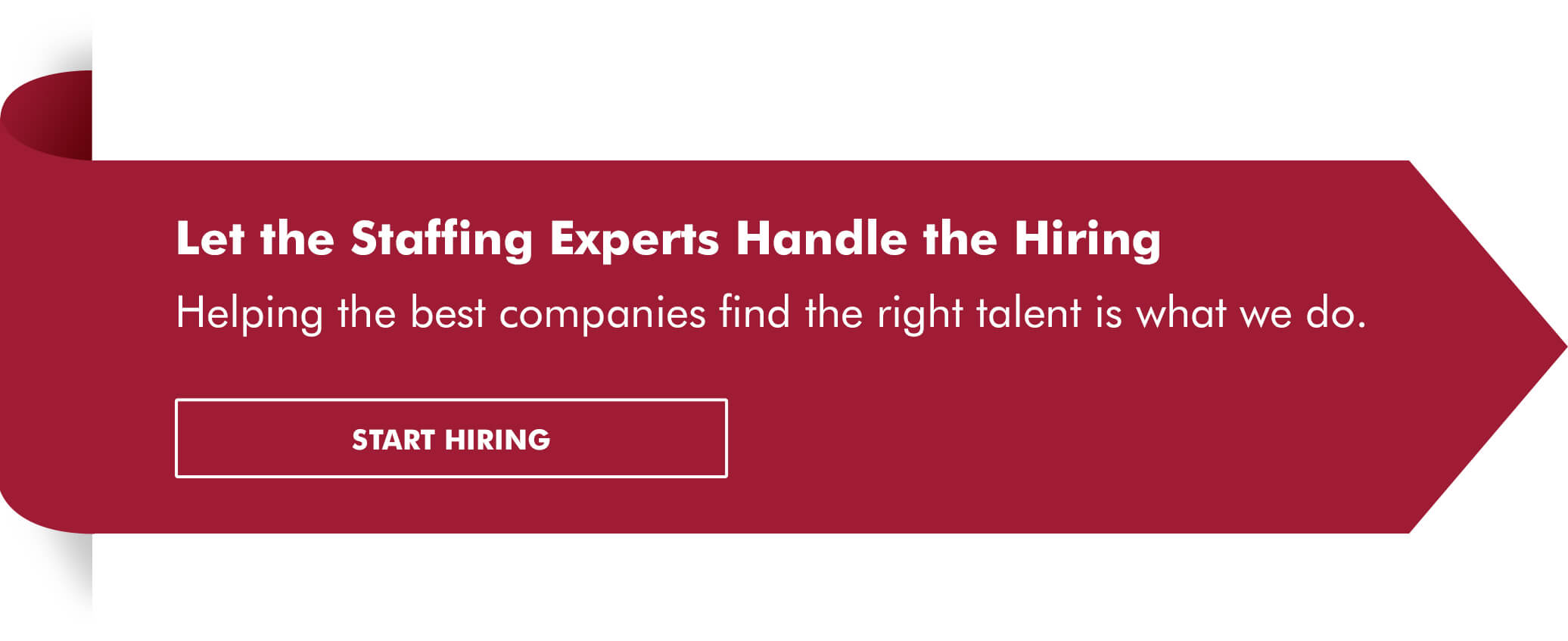Your company has grown so quickly recently that you need expert financial leadership and oversight. You need someone who can monitor the accounting and finance departments' policies and procedures, set budgets, provide guidance on complex tax and compliance issues, and contribute to the financial strategy discussions at your company. In other words, you need a financial controller.
In most companies that employ a controller, the person in the position plays a crucial role. The controller usually oversees the day-to-day operations of the finance department and manages financial reporting. The person in this role has input and influence on the company's important financial decisions and can have a strong hand in determining the health of the company.
Looking for a controller to move your business forward? Give us a call.
With so much riding on this controller position, it's critical to make sure you hire the right person for the job. The skills and attributes below should top your list of must-haves when you're looking for a financial controller.
A firm grasp on the numbers
First and foremost, a controller must have a strong understanding of all functions of the typical accounting department, including accounts receivable, accounts payable, and payroll and clearing. But the right candidate will not simply show competence in accounting procedures. He or she will also be able to answer tough questions and manage others in your financial department.
Most controllers have a master's degree in accounting or business administration, and many are CPAs or certified management accountants (CMAs).
Do you know the latest controller salary benchmarks?
In-depth knowledge of the entire finance function
Look for someone who has the expertise necessary to maintain all financial aspects of your company, even if your company already has a CFO. Your top candidates should be comfortable negotiating contracts and insurance policies, reviewing invoices, and meeting with tax advisors and auditors.
If you find a controller with experience establishing and executing internal financial controls, that person will be less likely to be intimidated if he or she is asked to step in and help with the administration of financial planning and reporting.
A passion for the details, an ability to explain them
One of the most important skills a successful controller can have is the ability to stay organized. Controllers have to keep up with so much information, often tracked in complex spreadsheets, that orderliness is vital.
Excellent soft skills are crucial, too. A controller must be able to relay difficult, dense information to upper management in a precise and easy-to-understand way. Controllers who are good communicators can also provide your company with valuable analysis and expert opinions on financial topics.
The personality to get along with coworkers
It's easy to focus on the technical skills required of a controller, but business skills such as the ability to work with a team, negotiate successfully and solve conflicts are equally important. Your company's controller will be given a great deal of responsibility and will collaborate with departments throughout the firm. This means it's imperative to make sure the person you hire for the position will fit in with your current teams, particularly those in upper management.
Hiring a controller can be a big step. Depending on the size of your company, the candidate who lands the position could be in charge of the firm's entire financial state. Start by seeking organized team players who excel in accounting and are not intimidated by the thought of providing complete financial support.
Questions to ask controller job candidates
Knowing what you need in a financial controller makes asking the right questions much easier when it's time for the interview. Getting answers to the following 12 questions helps you ensure that the person you hire will step into the role ready to succeed from Day One:
- What steps did you take to reduce expenses and/or increase revenues at past companies you've worked for?
- What sort of experience do you have in establishing internal financial controls?
- What are some procedural improvements you've made at past jobs?
- Are you able to explain financial matters in a way that the management team can understand?
- In what ways have you helped junior members of the financial team improve their skill sets?
- What steps have you taken when it comes to continuing education in your career?
- When hiring financial staff, what qualities do you look for?
- How would you rate yourself as a motivator?
- Recall a time when you experienced an impasse in the workplace. What steps did you take to help resolve it?
- What's the biggest challenge you've faced in your career, and how did you deal with it?
- Why are you the best candidate for this position?
- Is there anything else you'd like to add to help influence our hiring decision?
No hiring decision should be taken lightly, but that maxim is especially true for the position of controller. Maintain focus on what your company needs and how each candidate embodies essential qualities, and you'll greatly increase your odds of hiring the right person the first time around.








